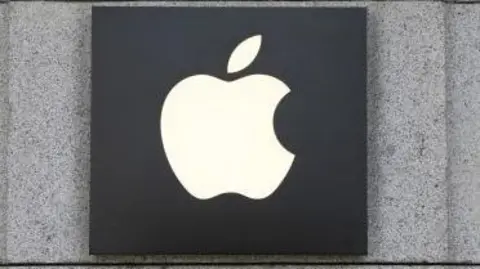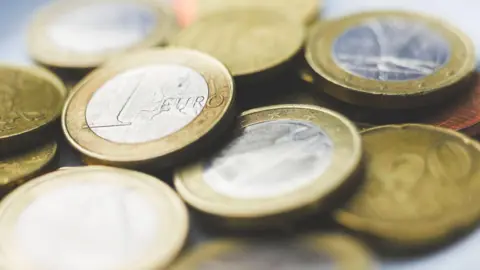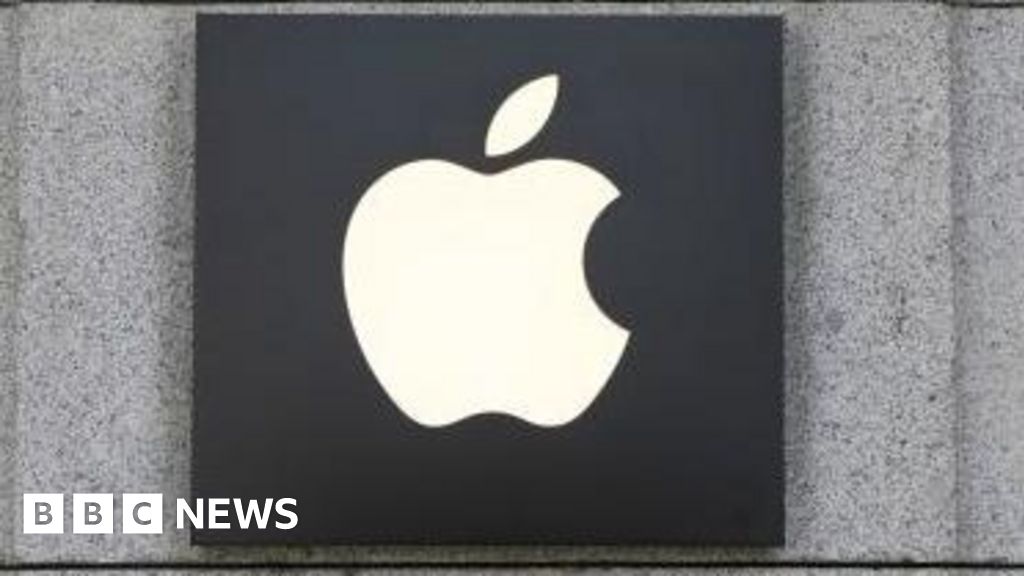 Getty Images
Getty ImagesIreland’s government has been told it needs to collect €14bn (£11.8bn) in back taxes from Apple.
The EU’s highest court ruled that the US technology firm had benefited from an illegal sweetheart tax deal in the country.
But how will the Irish government use this windfall?
Pay down the national debt


The most boring and conservative thing the government could do is to reduce the country’s national debt.
At the end of last year, Ireland’s net government debt was about €181bn (£152.7bn)
So using the entire windfall on debt repayment would reduce it by almost 8%.
That would help cut the amount the government has to pay in debt interest and give the country a bit more breathing space if there is an economic downturn.
However, there is no great urgency do this as the debt is not particularly high by international standards.
As a proportion of national income, net debt is about 60% compared to the UK where it is about 100%.
There had been a suggestion that under EU rules the money would have to be used on debt reduction but Ireland’s Finance Minister Jack Chambers says that it is not the case.
Build infrastructure


Ireland’s economy has recovered strongly from the banking crisis and austerity of the late 2000s.
But the country’s infrastructure has not kept pace with that growth. Significant investment is needed in energy, water and housing.
So could the €14bn be used to kickstart a major programme of public works?
Taoiseach (Irish PM) Simon Harris has suggested that is on the agenda saying: “There are clear areas where it would merit consideration around infrastructure, housing and other areas where there are constraints.”
A potential difficulty with this is a lack of construction workers.
Ireland is close to technical full employment so there is not obviously a reserve army of workers ready to dig ditches and lay blocks.
Trying to spend a lot on construction in the short term could just fuel inflation.
Invest it


The Irish government has begun the process of establishing a €100bn (£84.4bn) sovereign wealth fund and a second €14bn (£11.8) pot to protect infrastructure spending during economic downturns.
These are being set up using some of the corporation tax windfall that Ireland has received from major global companies in recent years.
From 2024 until 2035, an amount equivalent to 0.8% of GDP will be paid into the main fund every year.
Depending on investment returns, the fund could be as large as €100bn (£84.4bn) by 2035.
Governments can then draw down the fund’s investment returns without depleting the original capital.
Putting the money into the fund could help get to the €100bn (£84.4bn) target before 2035.


